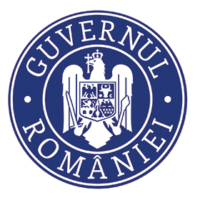Bridges: With Romania and Japan marking 100 years of close ties in 2021, what does the future hold for this important relationship?

Aurescu: I am confident that a new century of valuable exchanges between Romania and Japan lies ahead of us, as well as closer ties between the Romanian and the Japanese people. This anniversary provides an opportunity to take stock of the history and the milestones of our bilateral relationship, while jointly planning its way forward. Romania and Japan are natural partners and like-minded countries, sharing deep mutual respect for each other, as well as for fundamental values, such as democracy and freedom, which should ground both our bilateral cooperation and our efforts to advance post-crisis recovery and resilience at the international level.
The most recent document steering our relationship is the 2013 Joint Statement for a Renewed Partnership between Romania and Japan, signed by His Excellency Prime Minister Fumio Kishida, in his capacity as minister for foreign affairs at that time. The eight years that have passed since that moment have proven the closeness and compatibility of our approaches: Romania and Japan work in harmony, have similar positions on most regional and global issues and support and complement each other in various areas. In this vein, we have recently decided to advance our bilateral ties to the level of a strategic partnership, which we aim to conclude in the very near future. It will be a framework agreement spanning four key areas — political ties, strategic cooperation, economic exchanges and cultural, scientific and people-to-people relations — and an ambitious plan for a resilient future.
Our political dialogue is consistent at various levels, starting at the highest level — the president of Romania attended the enthronement ceremonies of his majesty the emperor in October 2019. In addition, in terms of strategic cooperation, both our countries are promoters of peace, both advocate peaceful solutions to tensions in their respective regions (the Black Sea, Ukraine in Romania’s case, and, in the case of Japan, the South China Sea, the East China Sea and the Indo-Pacific in general) and both countries actively support the rules-based international order and the international law. Moreover, Romania’s status as a NATO member state provides an additional framework for enhancing cooperation in this area, as Japan is a partner country to the alliance.
I would also like to highlight the good prospects for deepening Romanian-Japanese cooperation in the Indo-Pacific area. Japan boasts a long and successful engagement in the region, promoting its vision of a free and open Indo-Pacific. The U.S. is also at the forefront of advancing FOIP. The European Union has recently launched its own Strategy for Cooperation in the Indo-Pacific, looking not only to play a more prominent role in a region of growing importance, but also to bring its own contribution in the Indo-Pacific. Along these lines, the new EU strategy provides important opportunities for engagement with Japan. Thus, Romania, as an EU member state, looks forward to step up efforts of building upon these opportunities; for example, Romania can contribute with expertise in areas such as cybersecurity, law of the sea, disaster management and more, while working together with Japan.
Read the full interview at Bridges: www.sms-bridges.com





